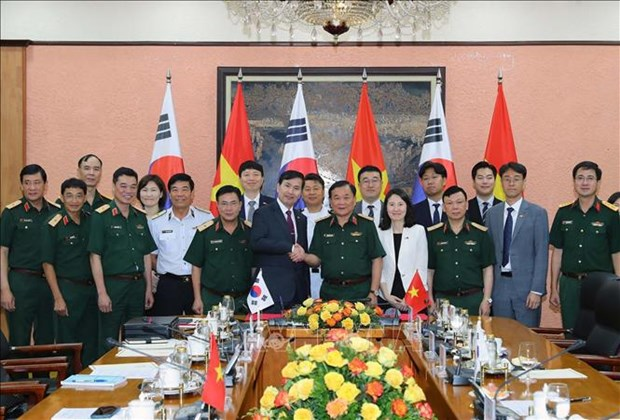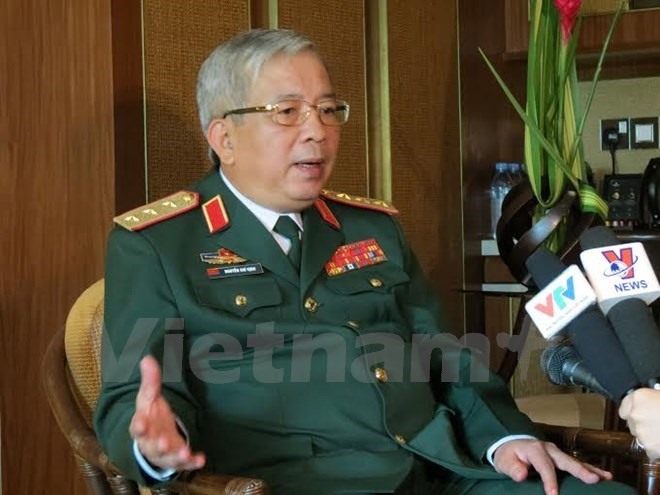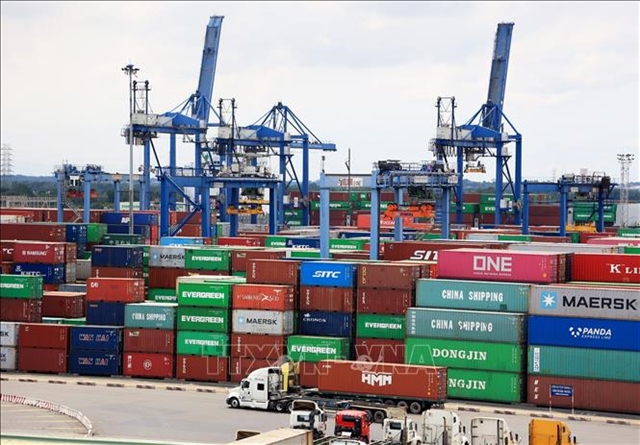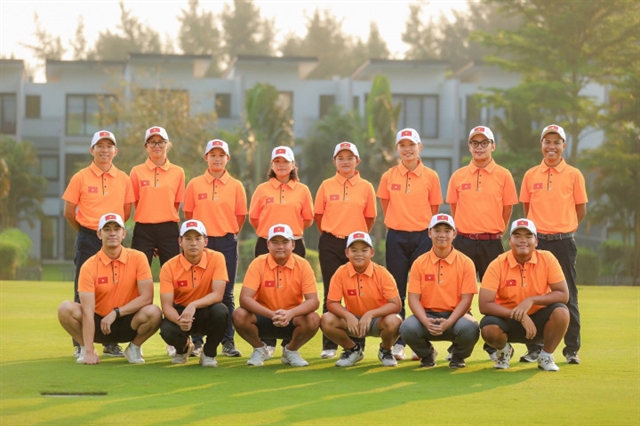 Politics & Laws
Politics & Laws
.jpg)
Nguyễn Chí Vịnh, Deputy Minister of Defence tells the Viêt Nam News Agency that the nation’s defence forces not only protect national sovereignty, they also contribute to socio-economic development.
 |
| Nguyễn Chí Vịnh, Deputy Minister of Defence. — VNA/VNS Photo |
Nguyễn Chí Vịnh, Deputy Minister of Defence tells the Vietnam News Agency that the nation’s defence forces not only protect national sovereignty, but they also contribute to socio-economic development.
It has been reported that the Defence Ministry will conduct a thorough inspection of national defence land in HCM City. Can you tell us something more about it?
I want to emphasise that the Ministry of Defence (MoD) did not take this decision to conduct a thorough inspection of the national defence land in the city. That said, whatever inspection is launched, it must abide by Vietnamese law and have solid reasons and also a detailed implementation plan.
The MOD has instructed all army units, military regions and army corps to review the land they are currently using for national defence and other missions that they have been assigned.
Of course, in this inspection drive, the review of land used for economic activities is a special focus. If any wrongful land use is detected, we will take corrective action immediately. This is something that is done regularly by MoD’s Central Military Commission.
The Central Military Commission has recently received initial land use reports from all army units, military regions and army corps. Basically, national defence land has been managed in accordance with national laws with the objectives of conducting drills and maintaining combat readiness. Land has also been used for production to generate income.
What about the report that the golf course project next to the present Tân Sơn Nhất airport will be retrieved?
More than 10 years ago, the Government approved the use of idle land in the Tân Sơn Nhất airport for other activities with the condition that that land would be returned for state use unconditionally when there is a demand for national defence mission or upon the instructions of the MoD or the Government. MoD and the investors have signed an agreement regarding this matter.
The Central Military Commission has organised many inspection visits, including representatives from the National Assembly, to inspect the construction and activities of the Tân Sơn Nhất golf course.
These inspections showed that the construction and activities of the golf course were totally in line with Vietnamese laws. However, the operation of the golf course adjacent to the Tân Sơn Nhất Airport has elicited negative comments from the public.
That’s why, early this year, the Minister of National Defence ordered a halt to all construction activities in the service areas within the golf course, including restaurants, hotels, villas, apartments for lease and others until a final decision is made.
The MoD is willing to negotiate with the project owner on the recovery of the land that the golf course is built on and hand it over to the Government if there is a demand for expanding the airport.
This is in line with the Government’s plan to meet the common interest of the State, the Việt Nam People’s Army as well as the investor’s legitimate interest in conformity with the Vietnamese law.
The Việt Nam People’s Army has always paid special attention to the needs of the country’s socio-economic development as well as those of other economic entities.
The Army is ready to hand over any piece of land that has not been used to the local/central government for the noble objective of national socio-economic development. Of course, when the MoD needs the land for national defence, it will ask to take it back from the Government.
Please tell us more about current national defence land planning and management.
Defence land is land that belongs to the nation. It should, therefore, follow the nation’s laws. There is no differentiation between land for national defence and other land. However, land for national defence has some specific characteristics, as does land for economic missions, urban development, agriculture and so on.
Land of national defence is mainly used for activities like military training and building military barracks. Any piece of land of the MOD that is not being used for military purpose can be used for economic purposes to improve the living conditions of soldiers and other activities.
I should say that until now, up to 90 per cent of our land for economic purposes has been allocated to localities, economic sectors or returned to the government to open roads or for environmental projects, building of urban areas and other similar purposes.
However, at this moment, the Central Military Commission has temporarily stopped the transfer of national defence land for economic activities. In special circumstances, the MoD will consider a proposal carefully to ensure that it is in line with the country’s legal framework.
In the near future, the MoD will launch an inspection drive on the use of defence land nationwide. We hope to further consolidate the people’s confidence in the Việt Nam People’s Army.
Recently, there has been some talk that the Army should not engage in economic activities. How would you respond to this?
Here, the “economic activity” that the army engage in is a national defence economy, done in service of national defence and the country’s socio-economic development.
After the Việt Nam People’s Army came into being, late President Hồ Chí Minh often told soldiers that they must be good fighters as well as good working people. Of course, their assigned missions would depend on the real circumstance of the nation.
So far, quite a few army enterprises have successfully applied science and technology in weapons manufacturing and other necessities for the army. They have also actively contributed to national socio-economic development.
And more recently, the Central Military Commission has requested the Army enterprises to carry out four missions.
First, Army enterprises must carry out two duties at the same time: national defence and economic missions.
Second, they should be organised in accordance with Government’s regulations and restructuring guidelines.
Third, they have to operate according to regulations that State enterprises must abide by.
Fourth, they cannot abuse their Army status in economic operations. Since early 2016, all vehicles carrying red plates (reserved for Army forces’ personnel) have been prohibited from economic and income-generating activities.
In the past, the Việt Nam People’s Army had nearly 200 enterprises. This has been reduced to a little more than 80. The MoD has recently come up with a plan to cut this down further to just 17. The proposal is in line with the 4th Resolution of the Party Central Committee (11th tenure). — VNS
.jpg)



